50 Sequels That Were Radically Different
All change, please
Rambo: First Blood II (1985)
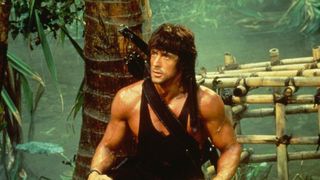
The Original: First Blood, a post-Vietnam action flick that takes a searing look at PTSD as John Rambo (Sylvester Stallone) is harassed and then hunted by local coppers.
The Radically Different Sequel: Rambo heads back to Vietnam to release American prisoners of war and goes up against corrupt politician Marshall Murdock (Charles Napier).
Biggest Change: Aside from Stallone's newly-humongous frame? Well, the franchise is no longer about one man's personal trauma, but blowing up as many people as possible. Plus guns. Lots and lots of guns.
A Good Day To Die Hard (2013)
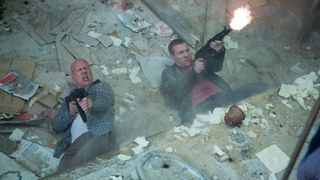
The Original: The action movie to end all eighties action movies. Cop John McClane (Bruce Willis) takes on Hans Gruber (Alan Rickman) and his band of terrorists when they take an LA high rise hostage.
The Radically Different Sequel : Fifth (and, some would say, worst) entry in the series. McClane heads to Moscow to track down his wayward son (Jai Courtney). Naturally, he ends up in the wrong place at the wrong time. Again.
Biggest Change: McClane leaves America for Russia. What was he thinking?!
Highlander II: The Quickening (1991)
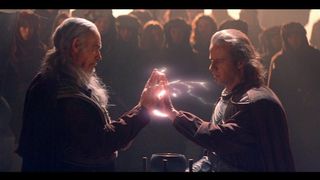
The Original: A playful genre mash of historical epic and present day fantasy. Christopher Lambert is an immortal swordsman who searches for the elusive 'Prize'. Think Wheel Of Fortune with swords.
The Radically Different Sequel: The Highlander (Lambert) attempts to save the earth by installing an ozone shield. Or something. This is a confused mess and even Lambert doesn't seem to know what's going on.
Biggest Change: The total lapse in logic is the biggie here.
The Highlander is, for some reason, now living in the future and able to resurrect his mentor (Sean Connery) despite the fact that he was UTTERLY and TOTALLY destroyed last time. Fnnnnrrr.
Back To The Future Part III (1990)
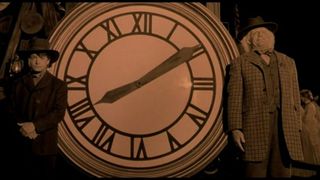
The Original: Ridiculously clever time travel flick. Marty McFly (Michael J. Fox) is transported back to 1955 where he attempts to keep history in tact while finding a way back to the future.
The Radically Different Sequel: Marty finds himself in the year 1885. Out of gas, and tormented by Mad Dog (Thomas F. Wilson), getting back to the future is going to be even more difficult than ever. Yee-haw!
Biggest Change: While we still get twisty time conundrums and meet distant relatives, this is very much a Western - something the franchise hadn't done previously. And, some might argue, shouldn't have done at all.
(But not us, we love it.)
Babe: Pig In The City (1998)
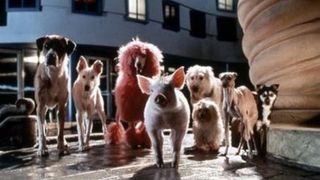
The Original: Loving adaptation of Dick King-Smith's novel about a pig (Babe) who grows up thinking he's a sheepdog. Laugh you may, but he turns out to be pretty good at herding…
The Radically Different Sequel: A totally bonkers road movie in which Babe heads to the big city in order to help save Farmer Hoggett's farm from bankruptcy.
Biggest Change: The first movie was a cute fable about never accepting your limits. The second film's a veritable zoo gone wild with crazy animals all over the place and a strangely acerbic sense of humour.
Sign up to the GamesRadar+ Newsletter
Weekly digests, tales from the communities you love, and more
Army Of Darkness (1992)
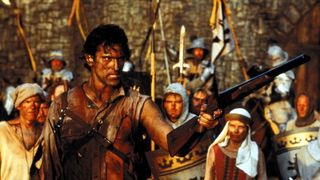
The Original: The Evil Dead was a micro-budget, woods-set horror in which demons come out of the woodwork, while Evil Dead 2 was a pseudo-remake-sequel which injected more humour (and gore) into proceedings.
The Radically Different Sequel: The third entry in the franchise whisks hero Ash (Bruce Campbell) off to 1300AD where he's low on gas (tricky when your sole weapon is a chainsaw) and the deadites are still on the loose.
Biggest Change: The humour's even more manic than ever and at times AOD feels like a delirious nightmare of increasingly wacky events.
Exorcist II: The Heretic (1977)
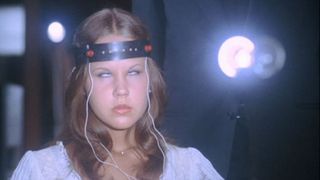
The Original: Based on the book by William Peter Blatty. An exorcist is called in when young Regan (Linda Blair) starts showing signs of possession. Is she crazy or does she have the devil in her?
The Radically Different Sequel: Four years after the first film, Regan's 16 and a patient at a psychiatric ward. But has the demon really gone, or is it simply resting?
Biggest Change : The spooky, portentous mood of the first film is completely gone for a hippy-trippy sequel that frequently slips into all-out ridiculousness.
Case in point: Blair tap-dancing and developing weird psychic powers. And don't even get us started on the locusts…
Bride Of Chucky (1998)
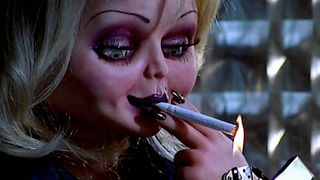
The Original: Cult eighties horror Child's Play. When voodoo killer Charles Lee Ray (Brad Dourif) is mortally wounded, he transfers his soul into a Good Guy doll that is given to six-year-old Andy (Alex Vincent) as a birthday present.
The Radically Different Sequel: Fourth entry in the franchise and the first to not use the Child's Play title. Chucky returns with a little help from his ex-girlfriend Tiffany (Jennifer Tilly), who gets dollified herself. Then? Road trip with Katherine Heigl…
Biggest Change: There are two talking dolls, and they're constantly bickering. The tone of the film is also even more humorous than previous instalments, which is actually a good thing.
This is basically a John Woo version of Child's Play.
Psycho II (1983)
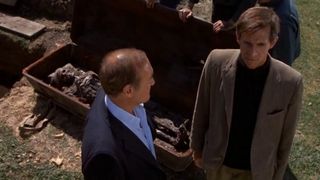
The Original: Black-and-white classic from Alfred Hitchcock. The proprietor of the Bates Motel, Norman (Anthony Perkins), turns out to be a crazy loon who kills people while dressed as his dead mother.
The Radically Different Sequel: Much-belated (Technicolor) follow-up. Norman has spent years in a mental institution. When he's released, it's considered a good idea to let him return to the house that turned him crazy in the first place…
Biggest Change: This time, Norman is the trouble hero of the piece. We're invited to root for him and hope that he's finally turned over a new leaf. But has he?
The Black Bird (1975)
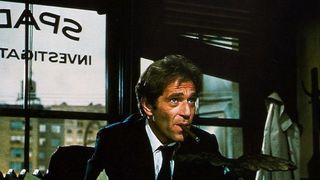
The Original: Classic noir The Maltese Falcon , starring Humphrey Bogart as private investigator Sam Spade, who gets caught up in a plot to uncover the mythical statue of the title.
The Radically Different Sequel: A comedy caper following Sam's son, imaginatively named Sam Jr (George Segal), who picks up his father's old Maltese Falcon case when Sam Snr passes away (off screen).
Biggest Change: Though Falcon had its fair share of character-driven comedy, The Black Bird is totally different in feel and tone - it's a broad comedy with none of the class of its noir predecessor.
Josh Winning has worn a lot of hats over the years. Contributing Editor at Total Film, writer for SFX, and senior film writer at the Radio Times. Josh has also penned a novel about mysteries and monsters, is the co-host of a movie podcast, and has a library of pretty phenomenal stories from visiting some of the biggest TV and film sets in the world. He would also like you to know that he "lives for cat videos..." Don't we all, Josh. Don't we all.
Most Popular




